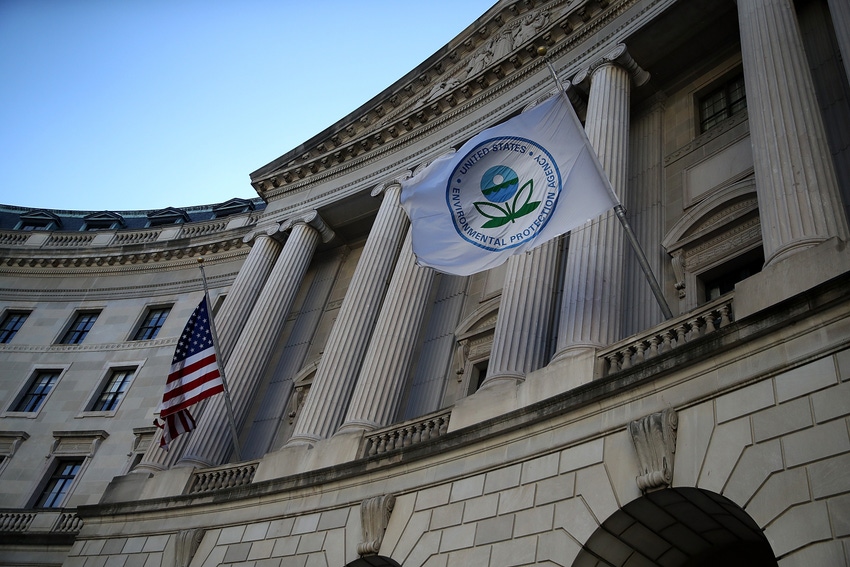Total of 66 outstanding smaller refinery exemption petitions remains critical to providing stability for biofuel producers and farmers.

During the Trump Administration a backlog of small refinery exemptions have piled up regarding compliance for the Renewable Fuel Standards volume obligations. Now President-elect Joe Biden’s administration will be tasked with approving or denying the many outstanding SRE requests now sitting at EPA.
On Jan. 4, a notice was published in the U.S. Federal Register of a proposed consent decree that would require EPA to make a decision regarding a 2019 SRE petition by Feb. 19, 2021. The consent decree specifically deals with a request by United Refining Co. from July 2020 alleging EPA failed to take final action on the petition for a small refinery hardship exemption from its 2019 obligations under the RFS.
“Even with the promise of a new year, there are continued challenges with EPA’s SRE program given the secrecy and lack of transparency into the entire process,” says Growth Energy CEO Emily Skor.
The U.S. EPA released updated small refinery exemption data on Dec. 17, reporting that five additional SRE petitions have been filed with the agency seeking exemptions from RFS blending requirements. Three SRE petitions changed from “denied” to “pending.” A total of 66 SREs are now listed as pending, up from 58 as of Nov. 19. The five newly filed SRE petitions are all for RFS compliance year 2020, increasing the number of pending petitions for that compliance year from nine as of Nov. 19 to 14 as of Dec. 17.
SREs granted for the 2018 compliance year resulted in a reduction of 1.4 billion gallons of ethanol use and 1.82 billion gallons for the 2017 year. This compares to 790 million gallons in 2016 and considerably less in the 2013 to 2015 compliance years.
Skor adds that with the 2020 blending compliance deadline at the end of March looming, EPA’s swift action on all 66 outstanding SRE petitions remains critical to providing stability for biofuel producers and farmers.
“President-elect Biden’s administration has an opportunity to uphold a key campaign promise to rural America, and deny any and all SRE petitions that are not in accordance with the Renewable Fuel Standard or the 10th Circuit’s ruling on SREs, which was almost a year ago,” Skor says.
On the campaign trail, Biden often condemned the Trump Administration’s handling and abuse of the SRE program, and repeatedly affirmed that “A Biden-Harris Administration will fight for family farmers and revitalize rural economies — [keeping] our promises to farmers by ushering in a new era of biofuels."
In a media call in mid-December, Geoff Cooper, Renewable Fuels Association president and CEO, said EPA “grossly exceeded its authority” in approving the previous SREs and he hopes to see those overturned and the volume restored. He said it would be better for the next administration to settle the decisions on the pending SREs from 2019 and 2020 and reject the gap year waivers.
The deadline to comment on the proposed consent decree is Feb. 3, 2021.
In a court filing filed Jan. 5, RFA and Growth Energy continued to call on the EPA and the Department of Energy to release the names and locations of refineries granted exemptions from their Renewable Fuel Standard obligations.
The dispute centers on EPA’s refusal to provide certain basic information about refinery exemptions as requested by RFA and Growth Energy under the federal Freedom of Information Act. The organizations state EPA incorrectly claims that even the names and locations of refineries receiving waivers are protected because they constitute "commercial or financial information obtained from a person [that is] privileged or confidential." But RFA and Growth Energy have simply requested the names and locations of the refineries petitioning for exemptions, not any commercial information or financial data that might otherwise be exempt from public disclosure under FOIA, they say.
“Although EPA shares the aggregate number of exemptions it has decided to grant or deny, its withholding of the basic information regarding individual exemption decisions sought here has made it difficult or impossible for affected third parties (such as Plaintiffs) to challenge its exemption decisions,” RFA and Growth Energy state in the court filing. “EPA has relieved scores of refineries of their statutory compliance obligations without any public process, leaving Plaintiffs and other affected entities ‘without a viable avenue for judicial review.’”
About the Author(s)
You May Also Like




.png?width=300&auto=webp&quality=80&disable=upscale)
